
Q&A With the Author of “Orthodox Paradox”
Joey Kurtzman, July 23, 2007

Noah Feldman
Marrying a shiksa?
TAGS: Education Intermarriage Kookiness Mitt Romney Modern Orthodox Noah Feldman The New York Times Magazine Tradition
Noah Feldman’s “Orthodox Paradox,” an article published in Sunday’s New York Times Magazine, is a shanda fer da goyim, a skewed and distasteful takedown that invites non-Jews to gawk at the internal problems of a modern Orthodox Jewish community. Or maybe it’s a poignant and brave discussion of the challenges of bringing a traditional faith into modern life, written by a man who cherishes his people. Either way, it’s kicked up a storm of impassioned chatter throughout the interweb, where you can find both these judgments and many more.
“Orthodox Paradox” hits on themes close to Jewcy's editorial heart, what with Feldman trying to figure out what a cosmopolitan Jew’s to do with this bewildering, antiquated faith that we just can't seem to leave behind. So we had to pick his brain a bit. Feldman, a professor at Harvard Law School who was raised modern Orthodox, agreed to answer my questions via e-mail.
In the hot seat: Noah Feldman
Why did you write this article?
These are issues I've been thinking about for a long time, and that have recurred again and again in my work on the U.S. and the Muslim world. My thinking on those topics is influenced by my education in the modern Orthodox world, and I came to think that others might be engaged with similar issues.
You were surprised when Maimonides—the yeshiva from which you graduated—airbrushed out you and your (non-Jewish) wife from a photo published in the alumni newsletter. Your surprise struck many readers as rather strange, since the community makes no secret of its rejection of intermarriage. It’s a bit as if you’d pulled out a bag of pork rinds, devoured them with relish throughout the evening, and then expressed bewilderment when someone asked you if you'd set them aside until later. What are your critics missing here?
My classmates are great. As it happens, the reunion was lots of fun and we were all warm towards one another, as one would hope. What is troubling about the view you describe—which I never sensed from my classmates—is its implication that somehow modern Orthodox people should be protected from my living my life as I choose. As if choice of life partner were as trivial as a snack. Going to a reunion is a perfectly normal part of life, and choosing not to attend, in order to shield people from my life, would be absurd. People who are comfortable with their own life choices don't get "offended" when others choose differently.
Along with some areas of the African-American community, Jews seem to be one of the only groups in America that can raise holy hell about intermarriage and get away with it. Why do you think this is? And if this aversion to intermarriage is harmful to our community, do you think we would benefit from more external criticism for it?
The comparison to the African American context is intriguing and complex—see Randall Kennedy's book Interracial Intimacies. I do think we need some serious reflection on how best to achieve the goal of continuity. Chabad certainly pursues this goal through practices of inclusion, and I think the rest of the Jewish world could learn a lot from them in this regard. As for criticism, from within or without, I think honesty is the best course.
A teacher of yours argued that Jews should only break Shabbat to save the life of a non-Jew if doing so protects the wellbeing of the Jewish community. He later apologized—but only because he’d said it in front of non-Jews. The idea is that we must watch our words around non-Jews, lest we reveal something about our traditions that will cause them to hate us or harm us. I’m struck by how similar this seems to the controversial Islamic concept of taqiya (utilized by Shia and Druze); that is, the deception of outsiders to protect the community. Is this an accurate comparison? Do Orthodox Jews essentially practice taqiya?
All oppressed communities must surely share the impulse to dissimulation. It includes taqiya but also, for example, casuistical texts allowing Catholics and Protestant to dissimulate when tortured by each other in early modern Europe. But in today's world of readily accessible information, little religious doctrine can remain secret. Anyone with a search engine could find plenty of texts dealing with the issues I discuss in the article—see for example, David Berger's scholarly article "Jews, Gentiles, and the Modern Egalitarian Ethos: Some Tentative Thoughts." What I find unconvincing is the argument that we are better off being silent about these lest they come into common currency or debate. They are already out there, and have been for centuries.
Throughout the piece you identify some very stark contradictions between what you call the "moral substructures" of traditional Judaism and modern life. For example, this debate about saving the life of a non-Jew on Shabbat conflicts drastically with the idea that all lives are of equal value. But then, after laying out these troubling contradictions, you finish the article by throwing your hands in the air and asking "Isn't everyone's life a mass of contradictions?" Isn't that a cop-out? If Judaism is anything, it's the refusal to live incoherently. If we’re serious about the business of adapting the tradition to modern life, don't we need to make tough decisions about what to do with these contradictions, and which aspects of the tradition ought to be deemphasized or reinterpreted? Is it really enough to say, "Gosh, life is so complicated!" and leave it at that?
By writing this piece I am precisely not "leaving it at that." Nor, I suspect, are the most thoughtful among the modern Orthodox and other streams of Judaism, who really are trying to live coherent lives, as I am.
Should Jews take a strong stand against the rules for breaking Shabbat to save a life of a non-Jew? Should religious leaders simply say that this teaching is obsolete and irrelevant, and that today we break Shabbat to save the life of a non-Jew for the simple reason that, as the Jewish doctor in your story said, "a human being is a human being"? And are Orthodox rabbis capable of saying such a thing?
I think my own ethical view is pretty clear. There are various positions in this debate, but the doctor's view could certainly have been expressed by someone with rabbinical ordination.
In your discussion of Baruch Goldstein’s 1994 massacre of 29 Palestinians at the Tomb of the Patriarchs, you write that "It would be a mistake to blame messianic modern Orthodoxy for ultranationalist terror." But you also describe how Goldstein attended services in which he heard the Biblical commandment to "erase the memory of [the Amalekites] from beneath the heavens," and would have been taught that the Amalekites rise again in every generation as the Jewish people’s enemies of the day. So it seems fairly straightforward for Goldstein to have concluded, based on things he’d heard in synagogue, that the Palestinians were today’s Amalekites and that he ought to kill as many as possible.
So my question is this: There is much talk these days about the responsibility of Muslim scholars and holy men to promote a kindly, magnanimous version of their faith, one which will not incite violence against nonbelievers. Do you believe that the Goldstein affair indicates that the Jewish community also ought to examine our faith and teachings to ensure that we are promoting no hatred or violence toward non-Jews?
The Islamic ethics of violence are undergoing a rapid and worrisome transformation for the worse. Muslim scholars—and all Muslims—have a duty to examine their own tradition. Jews have an analogous responsibility. It is easy to let ourselves off the hook and think of Baruch Goldstein and Yigal Amir as isolated figures. But we need to reflect on how their actions were connected to the ultranationalist messianic settler movement and its ties to mainstream Judaism. And these actions have had global consequences. What would the Mideast look like today if Rabin had lived?
Do you think Mitt Romney's Mormonism is kookier than other traditional belief systems? Are there any traditional communities in the United States whose practices you would find worthy of scrutiny if one of their members were running for President?
There is nothing wrong with scrutinizing the beliefs of candidates who say their religion influences their political judgments, but there is also no reason not to vote for someone just because he is a Latter Day Saint. There is nothing inherently less convincing about ascribing prophecy to Joseph Smith than to Moses or Muhammad. It always requires faith—whether a leap or some other acrobatic movement—to enter into the full consciousness of the religious person.
Many blog posts have already been written about your article. Are there any that you found particularly insightful? Any that led you to rethink something you'd written in the article?
I spent the weekend playing with my kids and haven't read blogs.
I asked the senior writer of the Jewess blog, Rebecca Honig Friedman, if she had any questions for Feldman. The following three questions are hers.
In the article, you mention your rabbi's rather ridiculous reaction to your holding hands with a girl. How would you have the modern Orthodox world deal with the issue of teen sex? Are you familiar with the OU's neigah.org website, and what do you make of it?
I hadn't seen the site until just now. It is obviously reminiscent of the broader national abstinence movement, and another interesting piece of evidence on the cultural interplay between modern orthodoxy and contemporary Christian evangelicalism. The problem is more challenging with respect to gay and lesbian Orthodox Jews: it remains to be seen whether orthodox Judaism can avoid the cultural trend of the evangelical movement and be accepting and welcoming within the bounds of halakha. As for the question of teen sex, honesty is crucial here. The halakha is what it is, and it will inevitably create tensions with sociocultural reality.
How, in your observation, does the role of women play out differently in modern Orthodoxy versus ultra-Orthodoxy or more liberal forms of Judaism?
Books have been written on this, and more need to be. I think modern Orthodox women in some ways face the greatest challenge with respect to modernity and tradition. I don't want to speak on anyone's behalf, but I will say that much of the most creative Jewish engagement with tradition today is coming from women working within a halakhic framework.
Why write this article in the NYT Magazine? What relevance do you hope it will have to not-specifically-Jewish readers?
What community—religious, ethnic, racial, or otherwise—doesn't engage with similar issues of belonging and membership, tradition and modernity?
* This post has been edited for concision since publication.
Noah Bar Kamtza, why not say what is on your mind? Try:
"It's all about me". "What matters to Judaism is irrelevant" "Who cares if I my children will be goyim. And what business is it to you?"
It is offensive to suggest that ChaBaD condones intermarriage. Noah Bar Kamtza should try learning Sichos of the Rebbe. Noah look at Volume 3, 15th Day of Tammuz, 5739, Sichos In English where the Rebbe OBM discusses Ahavas Yisroel:

3. In the concept of Ahavas Yisroel, there is a point that requires explanation: In Tanya, the Alter Rebbe quotes the Talmud that speaks about those about whom “King David... said “I hate them with a consuming hatred ... the heretics and atheists who have no portion in the G-d of Israel.” The Mitzva of Ahavas Yisroel encompasses them as well. We can relate to an object in two ways: 1) through union, or, 2) through negation. The latter is also a means of relation. There, too, a connection is established. Therefore, even the negative feelings that are expressed towards these people are part of the Mitzva of Ahavas Yisroel.
Though these feelings seem to run contrary to the entire concept of Ahavas Yisroel, there is a point of connection. A similar idea helps explain this point. Torah is called “the Torah of Kindness.” However, in the Torah there are also punishments. These punishments are also an expression of kindness.[237]
The Torah is also called the “Torah of truth.” Therefore, its kindness is true kindness, that true kindness motivates G-d “to wash the filth from the daughters of Zion,” (Isaiah 4:4) with punishments. The aim of these punishments is to bring the sinner back to the Jewish fold and to lift him up to the level of a Baal Teshuva, a level higher than that of a perfect Tzaddik. Similarly in our case, the hatred shown to these people removes their negative qualities[238] and allows us to relate to them, in a positive sense, through Ahavas Yisroel, as well.
Noah Bar Kamtza, did you hear what the Rebbe was saying? The Jews should shun you and avoid you for your choices. M'karev? Absolutely. But you must take the first step. You must seek to correct your wrong doing, to seek teshuva. Do you believe your Rebbeim have nachas from you? Go to them and plead for mechila. Then come back and ask to be treated better. Yes, you should have been air-brushed out of a Yeshiva Day School reunion photograph. Stop crying about it, unless those tears are tears of teshuva. Based upon your writing, I believe they are tears of humiliation. Instead, of trying to be the vatron you ran to the Roman authorities to betray and slander the Jews to Rome. Cheshbon nefesh would do you well.
















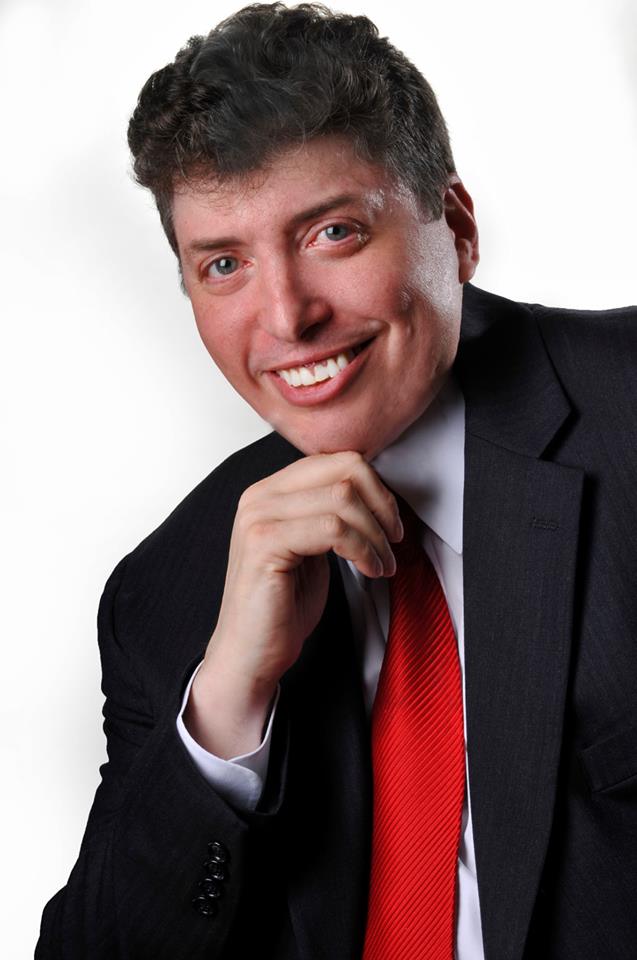



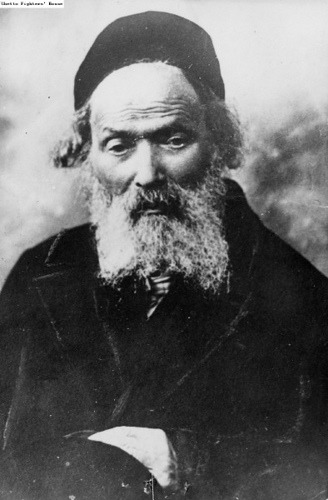
















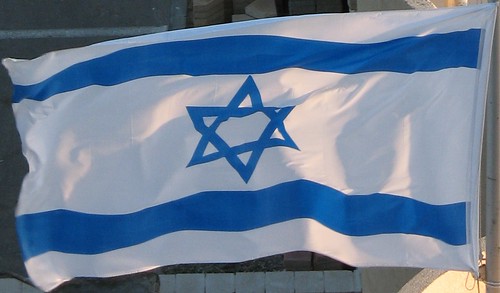
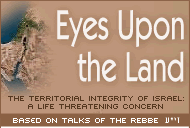

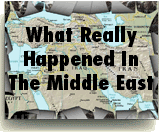


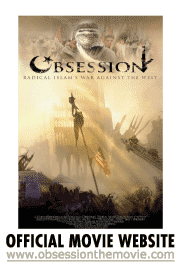





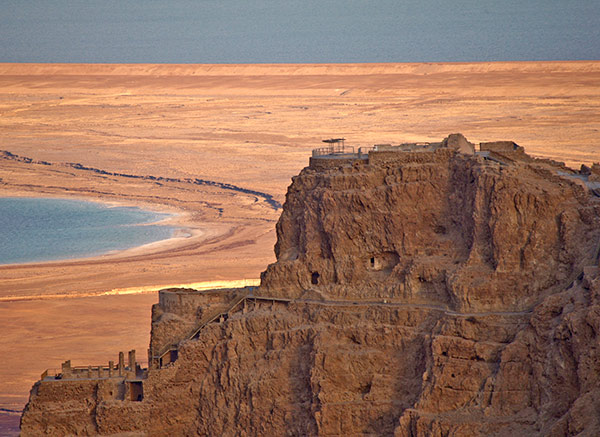
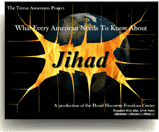
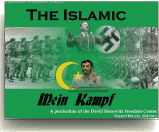




0 comments:
Post a Comment